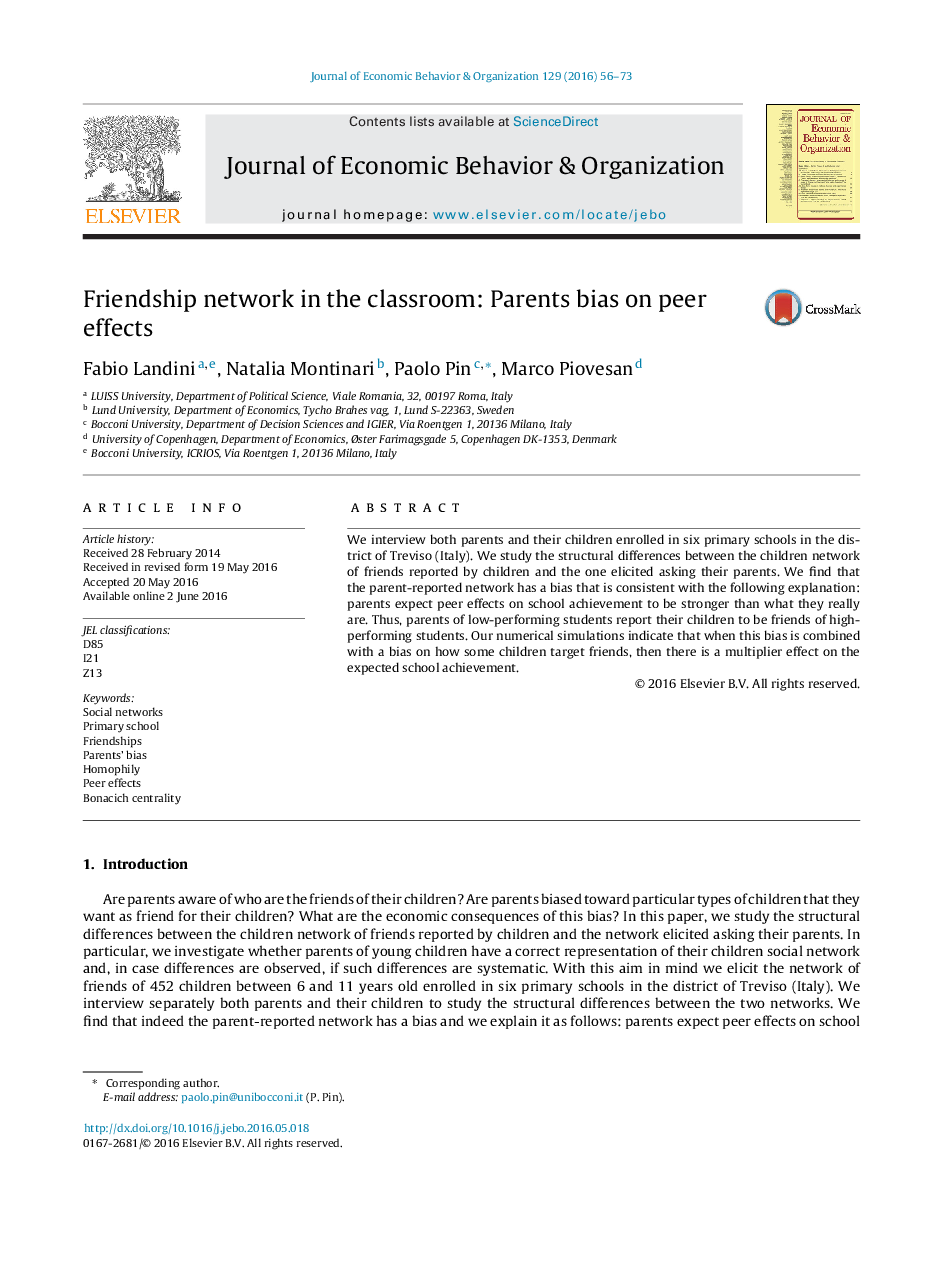| Article ID | Journal | Published Year | Pages | File Type |
|---|---|---|---|---|
| 883408 | Journal of Economic Behavior & Organization | 2016 | 18 Pages |
•For 452 students divided in 33 classes in six schools in the district of Treviso (Italy), we interviewed both parents and children.•We find that the parents’ network has a bias: parents expect peer effects on school achievement to be stronger than what they really are.•Thus, parents of low-performing students report their children to be friends of high-performing students.•Policy implication 1: when looking for peer effects, tracking the network this bias must be taken into account.•Policy implication 2: lack of parental knowledge is bad per se, and has been related to low school performance and school drop outs.
We interview both parents and their children enrolled in six primary schools in the district of Treviso (Italy). We study the structural differences between the children network of friends reported by children and the one elicited asking their parents. We find that the parent-reported network has a bias that is consistent with the following explanation: parents expect peer effects on school achievement to be stronger than what they really are. Thus, parents of low-performing students report their children to be friends of high-performing students. Our numerical simulations indicate that when this bias is combined with a bias on how some children target friends, then there is a multiplier effect on the expected school achievement.
